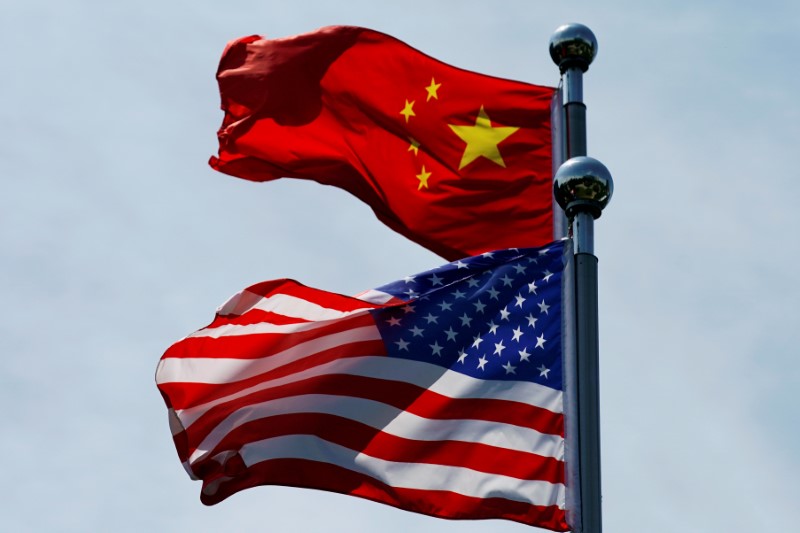By David Shepardson and Karen Freifeld
WASHINGTON/NEW YORK (Reuters) - The U.S Commerce Department said on Wednesday that new restrictions on 33 Chinese firms and institutions it announced last month will take effect Friday.
The agency has added the companies and institutions to an economic blacklist, accusing them of helping China spy on its minority Muslim Uighur population in Xinjiang or because of alleged ties to weapons of mass destruction and China's military.
China's foreign ministry said last month it deplored and firmly opposed U.S. sanctions over Xinjiang, calling it a purely internal affair for China.
The move will restrict the sales of U.S. goods to the companies and institutions on the list, as well as certain items made abroad with U.S. content or technology. Companies can apply for licenses to make the sales, but they must overcome a presumption of denial.
Seven companies and two institutions were listed for being "complicit in human rights violations and abuses committed in China's campaign of repression, mass arbitrary detention, forced labor and high-technology surveillance against Uighurs" and others, the Commerce Department said.
Two dozen other companies, government institutions and commercial organizations were added over Washington allegations that they supported procurement of items for use by the Chinese military.
The blacklisted companies focus on artificial intelligence and facial recognition, markets in which U.S. chip companies such as Nvidia Corp (O:NVDA) and Intel Corp (O:INTC) have been heavily investing.
The new listings follow a similar October 2019 action, when the Department of Commerce added 28 Chinese public security bureaus and companies - including some of China's top artificial intelligence startups and video surveillance company Hikvision (SZ:002415) - to a U.S. trade blacklist.

The actions follow the same blueprint used by Washington in its attempt to limit the influence of Huawei Technologies Co Ltd [HWT.UL] for what it says are national security reasons. Last month, the Department of Commerce took action to try to further cut off Huawei's access to U.S. chipmakers.